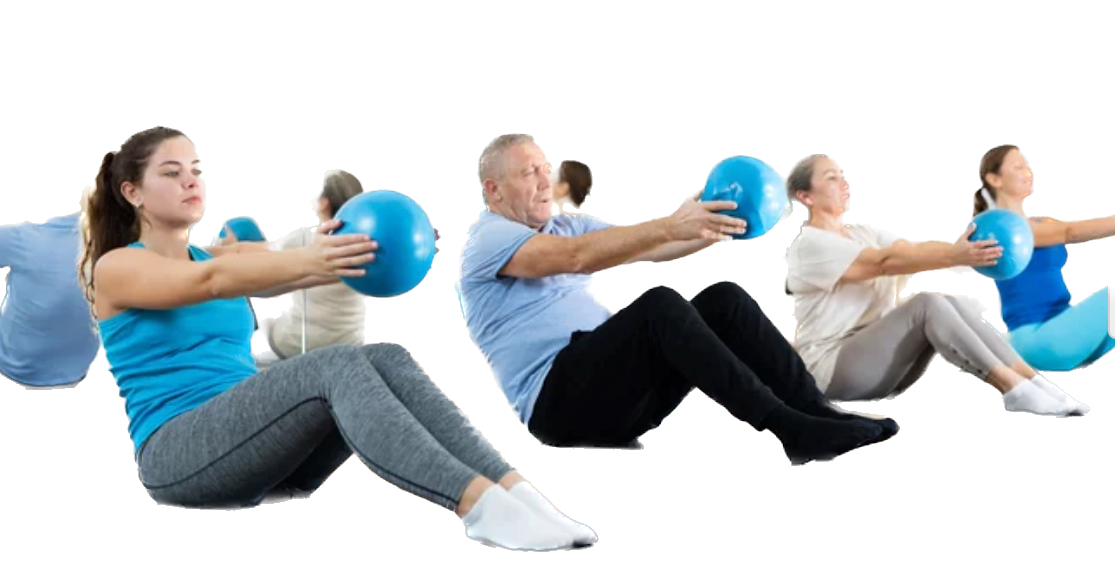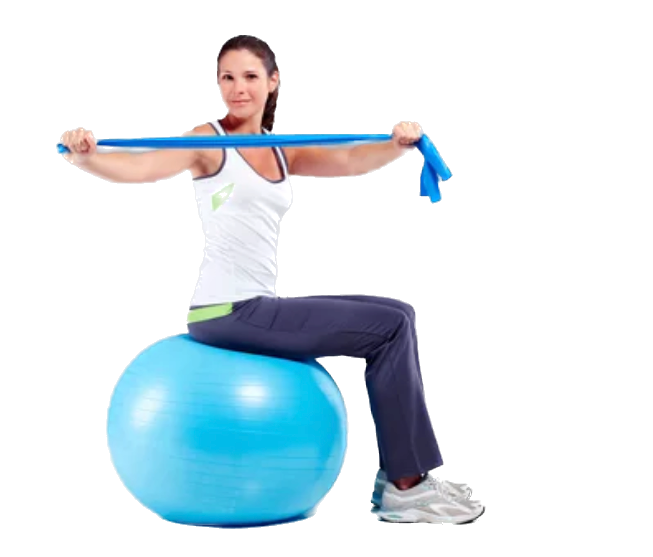“THE IMPORTANCE OF CORE STRENGTH IN BACK PAIN PREVENTION”
Back pain is a common problem affecting millions of people worldwide. One of the main causes of back pain is weak core muscles. The core muscles, including the abdominals, back, and pelvic floor muscles, provide support to the spine and help maintain good posture. Physiotherapists play a crucial role in helping individuals with back pain by assessing and addressing core muscle weaknesses. In this article, we will discuss the importance of core strength in back pain physiotherapy and how physiotherapists can help individuals improve their core strength.
UNDERSTANDING THE CORE MUSCLES:
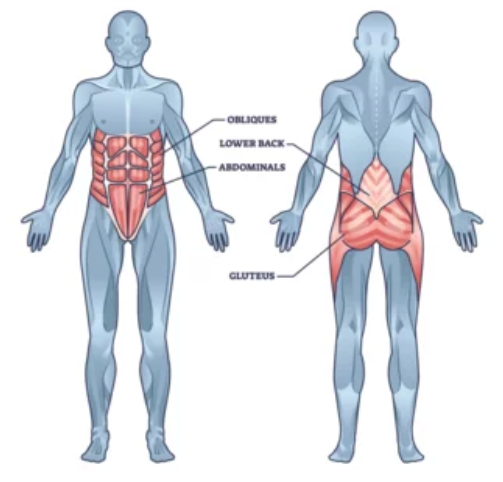
The core muscles are a group of muscles that provide support to the spine and pelvis, including the abdominals, back muscles, and pelvic floor muscles. These muscles work together to maintain good posture and stabilize the spine during movement.
THE RELATIONSHIP BETWEEN CORE STRENGTH AND BACK PAIN:
Weak core muscles can lead to a range of back problems, including poor posture, increased stress on the spine, and decreased mobility. When the core muscles are weak, the spine is not adequately supported, leading to increased pressure on the discs and joints of the spine. This can lead to pain, stiffness, and even nerve compression, causing numbness or tingling in the arms or legs. Weak core muscles can also contribute to poor posture, leading to a range of musculoskeletal problems, including neck pain, shoulder pain, and headaches.
HOW PHYSIOTHERAPISTS CAN HELP IMPROVE CORE STRENGTH:
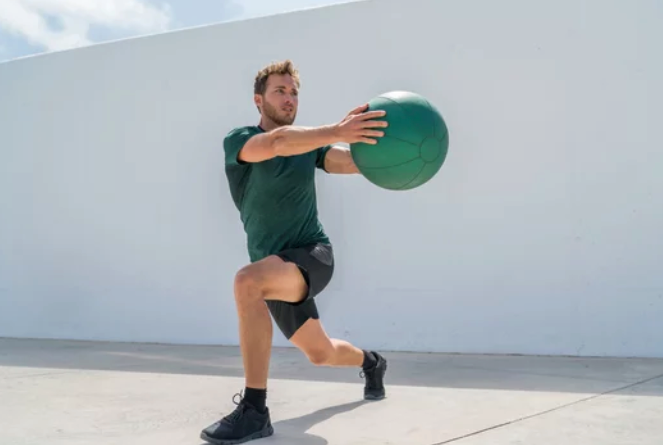
Physiotherapists are experts in assessing and treating musculoskeletal conditions, including those related to core strength. They use a range of techniques to help individuals improve their core strength, including exercise prescription, manual therapy, and education.
Exercise prescription involves designing an individualized program of exercises that target specific core muscles and improve overall strength. These exercises may include Pilates, yoga, or other core-strengthening exercises.
SPECIFIC PHYSIOTHERAPY TECHNIQUES THAT ARE PARTICULARLY EFFECTIVE IN IMPROVING CORE STRENGTH:
There are several techniques that can be used to build core muscles, including:
- Core-strengthening exercises: Exercises that target the core muscles, such as the abdominals, back muscles, and pelvic floor muscles, can help to build strength and improve overall core stability. Examples of core-strengthening exercises include planks, crunches, and bird dogs.
- Resistance training: Resistance training, such as weight lifting or using resistance bands, can also be effective in building core strength. Exercises that target the core muscles, such as squats and deadlifts, can be particularly effective.
- Pilates: Pilates is a form of exercise that focuses on core stability and proper alignment. It uses controlled movements to target the core muscles and improve overall strength.
- Yoga: Yoga is another exercise modality that can improve core strength. Certain yoga poses, such as the plank pose or boat pose, can help to target the core muscles and improve overall stability.
- Stability balls: Using a stability ball can be an effective way to engage the core muscles while performing exercises such as crunches or push-ups.
- Bodyweight exercises: Bodyweight exercises, such as push-ups and squats, can be a great way to build core strength without the need for equipment.
It’s important to note that building core strength takes time and consistency. It’s important to work with a qualified trainer or physiotherapist to ensure that you are performing exercises correctly and safely. Over time, with consistent practice and dedication, you can build strong and stable core muscles that will support your overall health and well-being.
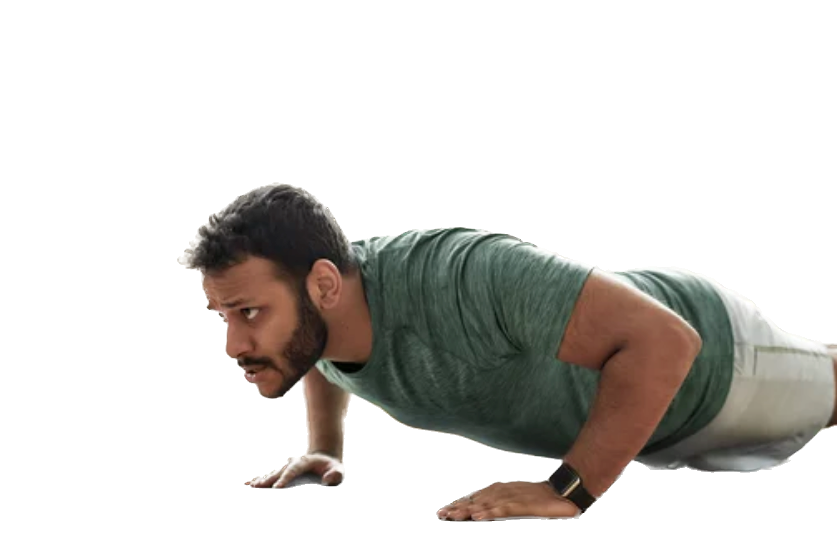
Core strength is crucial for maintaining good posture, preventing back pain, and improving overall health and mobility. Weak core muscles can lead to a range of back problems, including poor posture, increased stress on the spine, and decreased mobility. Physiotherapists play a crucial role in helping individuals with back pain by assessing and addressing core muscle weaknesses through a range of techniques and exercises, including Pilates, yoga, resistance training, and education. By working with a physiotherapist to improve core strength, individuals can reduce their risk of back pain and improve their overall health and well-being.
It is important to note that the information provided is for general education purposes only and should not be used as a substitute for professional medical advice, diagnosis, or treatment. Always seek the advice of your physician or qualified healthcare provider with any questions you may have regarding a medical condition.
